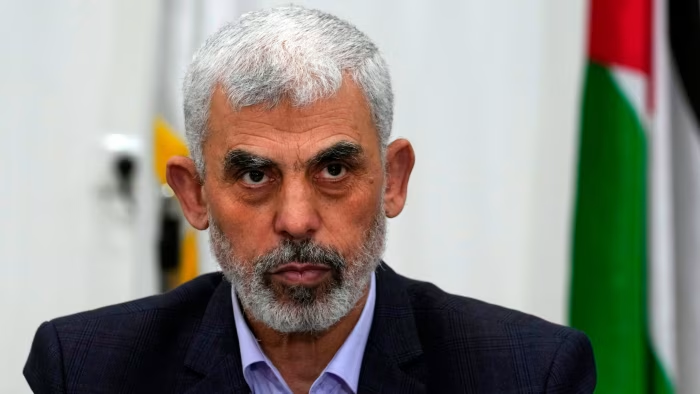The Israeli military has announced that it is investigating the possibility that Yahya Sinwar, a prominent leader of Hamas and a key figure behind the October 7, 2023, attack on Israel, may have been killed during a targeted ground operation in the Gaza Strip. This operation, carried out in the city of Rafah in southern Gaza, reportedly resulted in the deaths of three militants, whose identities are yet to be confirmed.
The Israeli Defense Forces (IDF) have stated that there are no indications that any Israeli hostages were present in the building where the three militants were killed. While the identities of the individuals remain unconfirmed, the military is conducting DNA tests to verify whether one of the deceased is indeed Sinwar. The Israeli Army Radio has reported that visual evidence from the scene suggests a high likelihood that Sinwar was among the militants killed.
Yahya Sinwar has been a top target for Israeli forces since the attack on October 7, 2023, in which Hamas-led militants carried out a large-scale assault on Israel, killing approximately 1,200 civilians and taking over 250 hostages into Gaza.
The attack ignited a new phase of the Gaza conflict, and Sinwar has been central to Hamas’ military strategy. He has long been on Israel’s radar for his involvement in orchestrating violent operations against Israel. Sinwar’s elusiveness, often attributed to Hamas’ complex network of tunnels beneath Gaza, has made him difficult to locate, despite being at the top of Israel’s most-wanted list.
Israel has access to DNA samples of Sinwar from his time in an Israeli prison, which they are using in their efforts to confirm the identity of one of the dead militants. If the death of Sinwar is confirmed, it would mark a significant blow to Hamas and could be seen as a major victory for the Israeli military and Prime Minister Benjamin Netanyahu, who has been under pressure to demonstrate decisive actions in the conflict.

This potential high-profile killing comes in the wake of a broader campaign by Israel to dismantle the leadership of groups it considers hostile. In the past few months, Israel has successfully targeted and eliminated several high-ranking figures in both Hamas and Hezbollah.
Last month, Israel conducted an operation in Beirut that led to the killing of Hasan Nasrallah, the leader of Hezbollah, a Lebanese militant group with strong ties to Iran. The deaths of these leaders represent a focused Israeli strategy of neutralizing key figures in the militant groups that have posed a threat to its security.
READ ALSO: American actor and rapper, Will Smith Explains Why He Refuses to Support Elon Musk’s New Tesla Robot
Earlier, Israel had also taken out former Hamas political chief Ismail Haniyeh in Tehran in August, signaling a broader regional offensive against individuals considered vital to the operations of Iran-backed organizations.
While the death of Yahya Sinwar, if confirmed, would be hailed as a significant military success for Israel, it also comes at a time of immense devastation in Gaza. The Israeli military response following the October 7 attack has led to widespread destruction in Gaza, with more than 42,000 people reportedly killed and much of the territory reduced to rubble. The conflict has displaced a large portion of Gaza’s population, creating a dire humanitarian situation.
The displacement, compounded by the destruction of infrastructure, has led to a massive refugee crisis, with most of Gaza’s residents now struggling to find shelter, food, and medical supplies. The international community has raised concerns over the heavy toll on civilians, and there have been repeated calls for ceasefires and humanitarian assistance to prevent further loss of life.
As DNA tests are awaited, the potential death of Yahya Sinwar could shift the dynamics of the Gaza conflict. Sinwar was not just a symbolic leader for Hamas but a strategic one, heavily involved in its military operations. His death could deal a blow to Hamas’ leadership structure, though the resilience of the group, bolstered by decades of operating in hostile environments, means it may still have the capacity to continue its operations.

For Israel, this development represents part of a larger strategic objective to weaken its adversaries by eliminating their leadership. However, the broader conflict in Gaza shows little sign of abating, and the humanitarian crisis continues to deepen as both sides grapple with the escalating violence.
In conclusion, while Israel waits for confirmation on whether Yahya Sinwar was killed in this recent operation, the situation on the ground in Gaza remains volatile. The ramifications of Sinwar’s potential death will reverberate not only through the leadership of Hamas but also throughout the region, as Israel continues its military campaign and the human cost of the conflict mounts.

